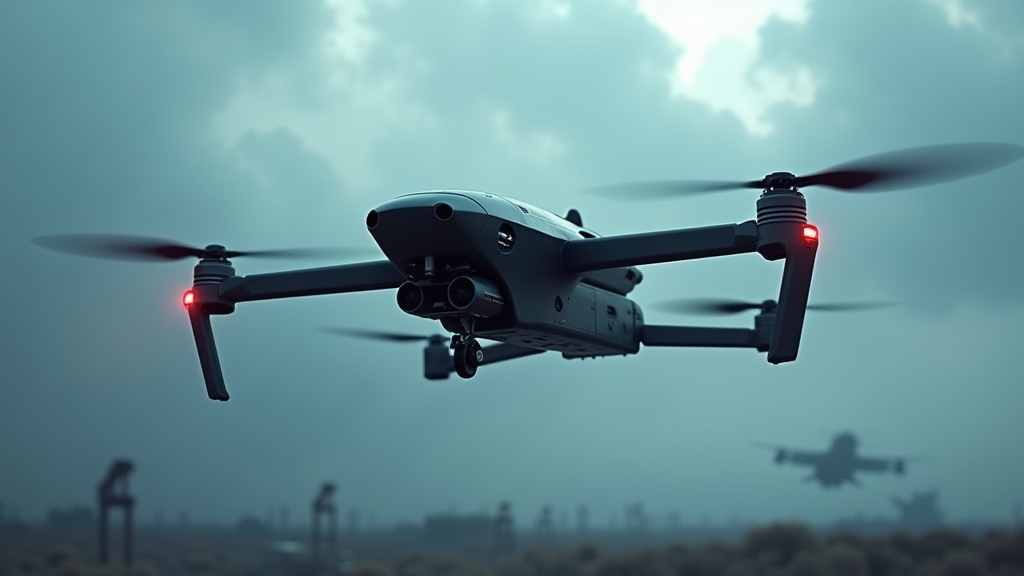“British AI Startup Proudly Brings Us One Step Closer to Dystopian Robot Bird Army”
In a bold step toward the future we all totally asked for, Faculty AI, the charming British tech firm that once helped predict hospital bed shortages and optimize the nation’s school timetables, has apparently decided to add “military apocalypse enablers” to its LinkedIn bio. Yes, the company that worked with your grandma’s NHS to streamline cataract appointments is now partnering with defense contractors to teach drones how to think, act, and potentially—how fun!—dodge accountability better than your local MP.
According to sources deep within the murky world of military tech (read: a guy who was very excited to leak this during a pub night), Faculty AI has been busy creating AI systems for UAVs, also known as unmanned aerial vehicles—or, for the rest of us, “flying death robots with questionable Wi-Fi.” Imagine if a Roomba grew wings, weaponized its laser sensors, and started muttering phrases like “target acquired.” Delightful.
“We believe our technology will usher in a new era of drone capabilities,” said a spokesperson for Faculty AI, nervously adjusting his tie as a predator drone whirred menacingly overhead. “From NHS logistics to battlefield efficiency, our AI knows no bounds. Literally, we’re working on geofencing glitches, but rest assured they’re almost sorted.”
Critics, meanwhile, are having what experts describe as “shocker-level meltdowns” at the sudden pivot from saving lives to…well, deciding which ones to save based on unspecified algorithms. “Sure, it’s a natural progression,” said Amelia Darnley, a defense ethics professor at Make Believe University. “If they can plan when Mr. Rogers needs his hip replaced, who’s to say they can’t map out which insurgent wedding gets blasted first? Efficiency is key!”
The UK government—because of course they’re involved—has predictably been as transparent as a solar eclipse about Faculty’s leap to international drone developer fame. “It’s all very above board,” said an anonymous official while backing slowly into a hedge. “Trust us, we have total oversight…or we’re planning to…at some point. Besides, have you seen how cool drones look in those promo videos?!”
Meanwhile, taxpayers are understandably curious about what percentage of their mum’s NHS funding is now being funneled into Skynet 2.0. “I thought these lads were just teaching computers how to make GP appointments faster,” said Colin Jenkins, a concerned citizen and pub regular. “Turns out they’re teaching robots how to ‘strategically assess risks,’ which is posh for ‘blow s*&% up.’ Brilliant. Just brilliant.”
Still, Faculty AI insists that all of its work with the government is perfectly safe, moral, and completely not a precursor to an inevitable uprising of killer drones that mistake rugby gatherings for “high-risk zones.” “Our core mission remains the same,” the spokesperson added, draping a camouflage net over a server labeled “TOP SECRET SKY-BOOM PROJECT.” “We’re just expanding into military applications. And, really, aren’t we all doing a little militarization in our spare time?”
In a world where Tesco still can’t figure out self-checkout tills and ChatGPT gets stumped by basic riddles, comfort yourself with the fact that someone thought airborne killing machines with “soldier-level cognition” were a logical next step. Who needs public trust or moral restraint when you’ve got a cutting-edge AI that’s read all three volumes of *The Art of War*?
As for Faculty’s next move, there’s talk of teaching automatons to mediate Brexit debates or possibly designing self-aware riot shields. It’s an exciting time for humanity, by which we mean, “Grab a helmet.”




